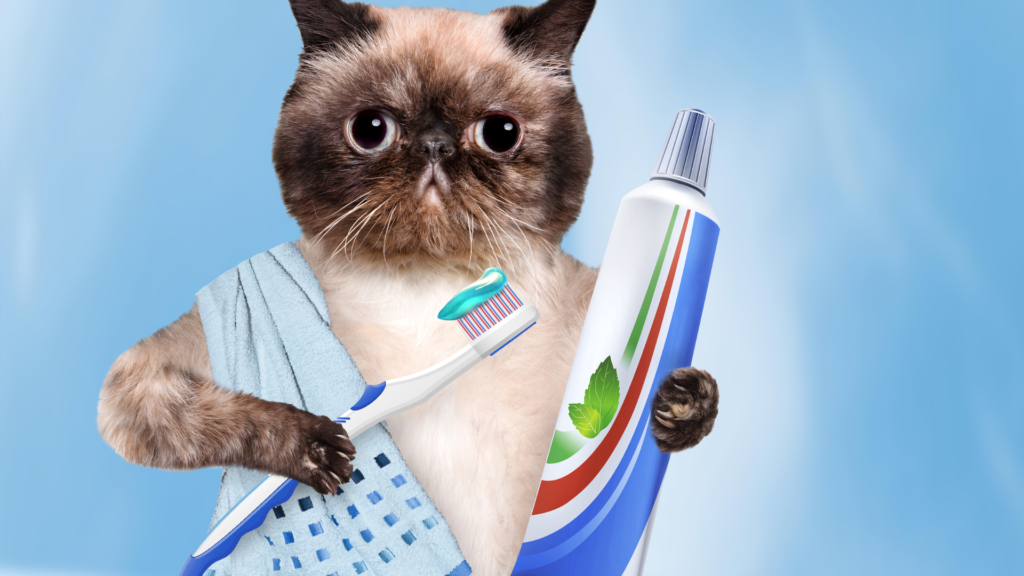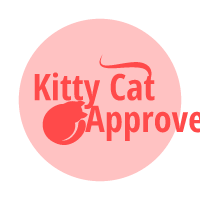Feline Oral Health: The Importance Of Dental Care For Cats
- by kittycatapprove.com
- Posted on 25/01/2024

Introduction:
As cat owners, we want the best for our furry feline friends. From providing them with nutritious food to ensuring their overall well-being, we do everything in our power to keep them happy and healthy. However, one aspect of their health that often gets overlooked is their oral hygiene. Just like humans, cats also require proper dental care to maintain good oral health. In fact, neglecting your cat’s teeth can lead to various dental diseases and ultimately affect their overall health. In this blog post, we will delve into the importance of dental care for cats and provide valuable information on understanding feline oral health, common dental problems in cats, proper dental care at home, the role of professional cleanings, and other essential tips for maintaining your cat’s oral hygiene.
Understanding The Basics Of Feline Oral Health
Feline oral health is a crucial aspect of your cat’s overall well-being. Just like humans, cats can develop dental problems if proper care is not taken. Neglecting your feline friend’s teeth and gums can lead to serious issues such as periodontal disease, which can not only cause pain and discomfort for your cat but also affect their quality of life. Regular dental care, including brushing their teeth and annual check-ups with a veterinarian, can help prevent these problems from arising. In this blog post, we will dive into the basics of feline oral health and why it is essential to prioritize dental care for your furry companion. By understanding the importance of dental hygiene for cats, you can ensure that they have healthy teeth and gums throughout their lives.
Signs And Symptoms Of Dental Problems In Cats
Cats are notorious for hiding their pain and discomfort, making it difficult to detect dental problems. However, as owners, it is important to pay attention to your feline friend’s oral health. Some common signs of dental issues in cats include bad breath, abnormal chewing or drooling, difficulty eating, swollen or bleeding gums, and tartar build-up on the teeth. Additionally, if your cat is pawing at its face or showing a decrease in appetite or weight loss, these could also be signs of underlying dental problems. Regularly checking your cat’s mouth for any abnormalities and scheduling routine visits with the veterinarian can help prevent serious dental problems and keep your cat healthy and happy.
The Link Between Oral Health And Overall Well-Being
Just like us, cats can suffer from a variety of oral health issues such as plaque buildup, gum disease, and tooth decay. These conditions not only cause discomfort and pain for our furry friends but can also have serious consequences on their overall health. Poor oral health in cats has been linked to various systemic diseases such as heart disease and kidney problems. This highlights the importance of regular dental care for our cats, including brushing their teeth and scheduling routine check-ups with a veterinarian. By prioritizing their oral health, we can help ensure that our feline friends live happy and healthy lives.
Common Dental Diseases In Cats: Causes, Treatment, And Prevention
Maintaining good oral health is essential for the overall well-being of our feline friends. Cats are prone to a range of dental diseases that can cause pain and discomfort, and if left untreated, can lead to serious health issues. The most common dental diseases in cats include periodontal disease, gingivitis, and tooth resorption. These conditions are caused by a buildup of plaque and tartar on the teeth, which can irritate the gums and eventually lead to infection and tooth loss. Treatment options for these dental diseases often involve a professional cleaning and possible extractions. However, prevention is key when it comes to feline oral health. Regular brushing at home, along with annual check-ups with a veterinarian, can help keep your cat’s mouth clean and healthy. By taking proper care of your cat’s teeth, you can ensure their comfort and happiness for years to come.
How To Properly Care For Your Cat’s Teeth At Home
Brushing your cat’s teeth may seem like a daunting task, but it is an essential part of maintaining their overall health and well-being. By making this experience a positive one, you can ensure that both you and your feline friend have a stress-free brushing session. The first step is to introduce your cat to the toothbrush and toothpaste gradually, allowing them to sniff and explore before actually using it on their teeth. Using tasty treats and positive reinforcement can also help create a positive association with brushing. Start slow and be patient, as it may take some time for your cat to get used to the sensation. With consistency and patience, you can make brushing your cat’s teeth a pleasant experience for both of you while promoting good oral health for your furry companion.
It’s important to start a dental care routine early on in your cat’s life to get them used to it and make the process easier. Regular brushing and check-ups with your veterinarian are key in maintaining your cat’s oral health and ensuring they have a healthy and happy life.
The Role Of Professional Dental Cleanings For Cats
While brushing your cat’s teeth at home is a great way to prevent plaque and tartar buildup, it’s also important to schedule professional dental cleanings for your feline friend. These cleanings are typically done under anesthesia and involve a thorough examination of the mouth, removal of plaque and tartar from all tooth surfaces, and polishing of the teeth. Professional dental cleanings not only keep your cat’s breath smelling fresh, but they also help prevent serious health issues such as periodontal disease. Additionally, these appointments allow veterinarians to detect any potential problems early on and provide necessary treatment before they become more serious. So while it may seem like just a routine procedure, professional dental cleanings play a crucial role in maintaining your cat’s overall well-being.
Special Considerations For Senior Cats’ Oral Health
As our beloved feline companions age, their oral health becomes increasingly important. Senior cats may have a higher risk of developing dental issues such as periodontal disease, tooth decay, and even oral cancer. This is why it is crucial for owners to pay special attention to their senior cat’s oral health and provide them with proper dental care. Regular dental check-ups and professional cleanings are essential in maintaining healthy teeth and gums in older cats. Additionally, providing them with a balanced and nutritious diet can help prevent plaque buildup and promote good oral hygiene. It is also important to look out for any changes in your senior cat’s eating habits or behavior that may indicate oral health problems and seek veterinary care if necessary. By taking these considerations into account, we can help ensure our senior cats maintain good oral health and overall well-being for years to come.
Importance Of Diet And Nutrition In Promoting Healthy Gums And Teeth
Proper diet and nutrition plays a crucial role in maintaining healthy gums and teeth for our feline friends. Just like humans, cats also need essential nutrients to support their overall oral health. A well-balanced diet that includes high-quality protein, vitamins, and minerals can help prevent gum disease, dental decay, and other oral health problems. However, it’s not just about what we feed our cats, but also how we feed them. Dry kibble is known to be more beneficial for their dental health as it helps reduce plaque and tartar buildup. In addition to a healthy diet, regular dental care such as brushing your cat’s teeth or providing dental treats can further promote good oral hygiene. Overall, incorporating the right diet and nutrition into your cat’s routine is vital for their overall well-being and maintaining strong, healthy gums and teeth.
Behavioral Issues Associated With Cat’s Oral Health Problems
Cats are known for their independent nature and their ability to take care of themselves. However, when it comes to their oral health, they can face some behavioral issues that may hinder proper dental care. These issues can range from refusing to eat or drink, excessive drooling, and avoiding contact with their mouth being touched. This could be due to pain or discomfort in the mouth caused by dental problems such as gum disease or tooth decay. It is important for cat owners to understand and address these behavioral issues as they can have a significant impact on their feline’s overall health and well-being. Regular dental check-ups and at-home oral care can prevent these issues and ensure a healthy and happy cat.
